I had a detailed schedule of events in my tank bag, but little idea of what to expect on arriving by motorcycle at Agassiz Village in Poland, Maine, for the Women’s International Motorcycle Association’s international rally, my first.[1] I put down my kickstand and walked toward the entrance of the large log-cabin-style dining hall to check in. A woman approached me and complimented my red, white, and blue Honda Alpinestars jacket. I later realized she was Hayley Bell, the 2019 American Motorcyclist Association Motorcyclist of the Year, who organized the Women Riders World Relay to connect women riders around the world.[2] Bell was the first of many women giving a warm welcome at the 75th Anniversary of the founding of WIMA. And she was just one of a veritable Who’s Who of women motorcyclists giving talks during the week-long event. I was thrilled to join them as a speaker, feeling an immediate sense of community and connection.
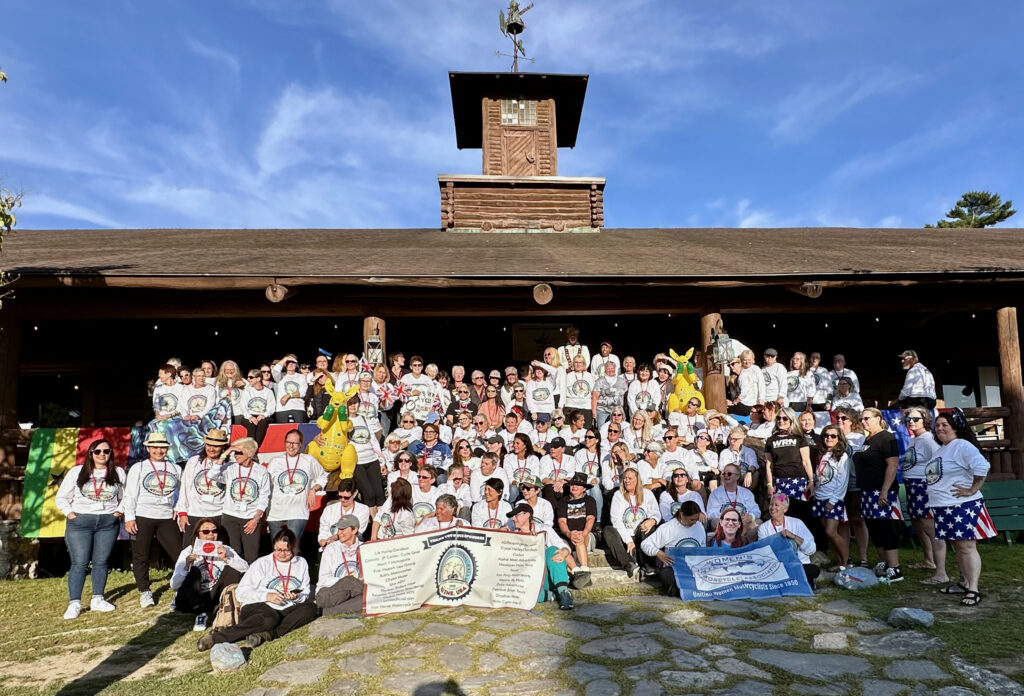
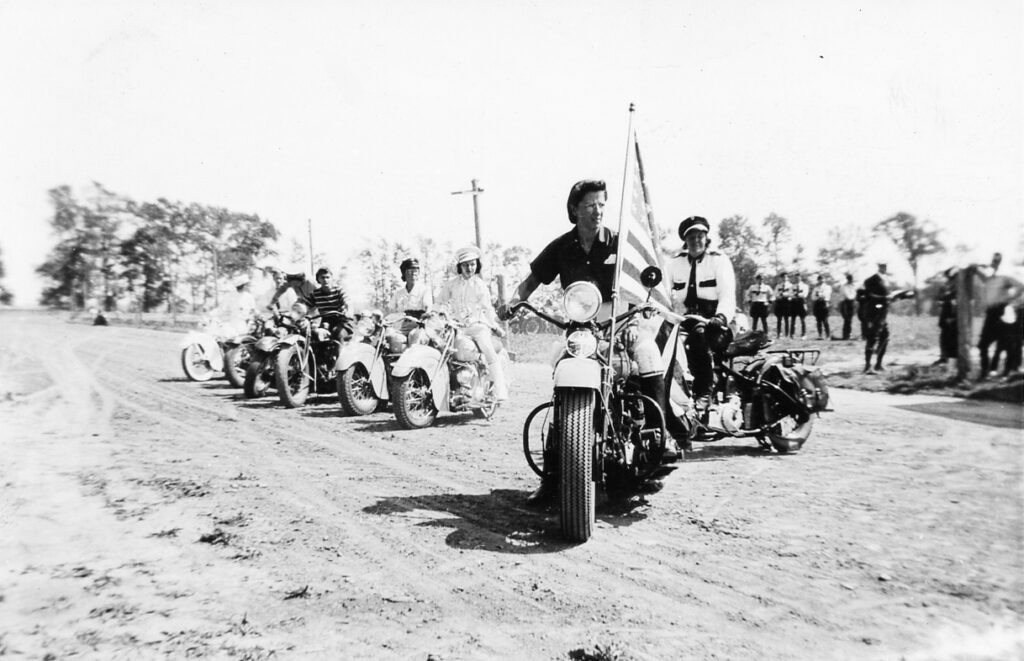
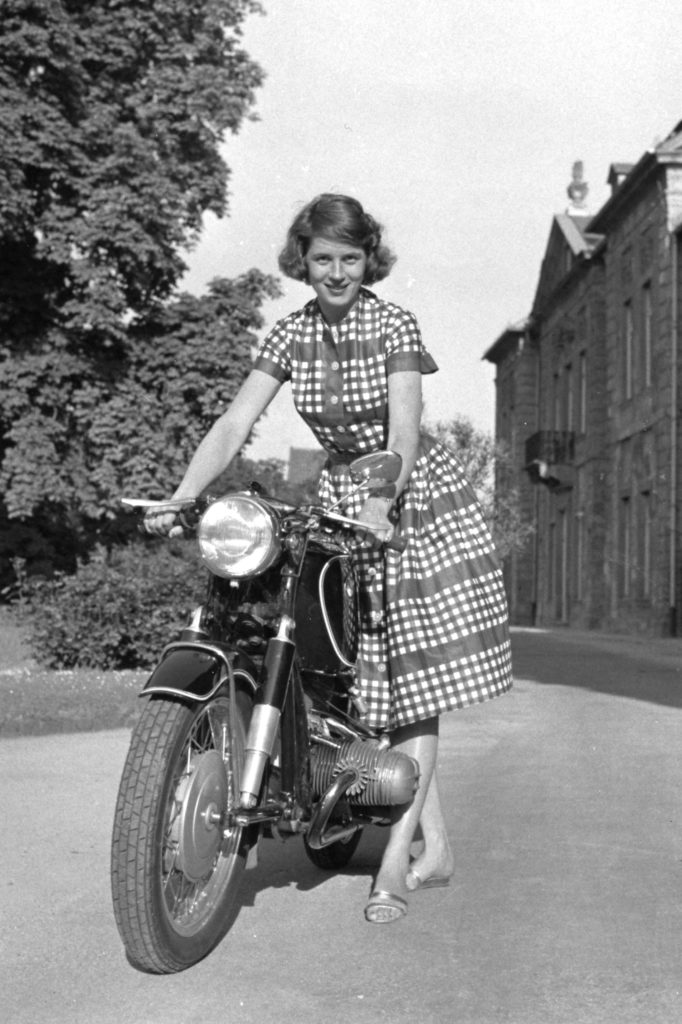
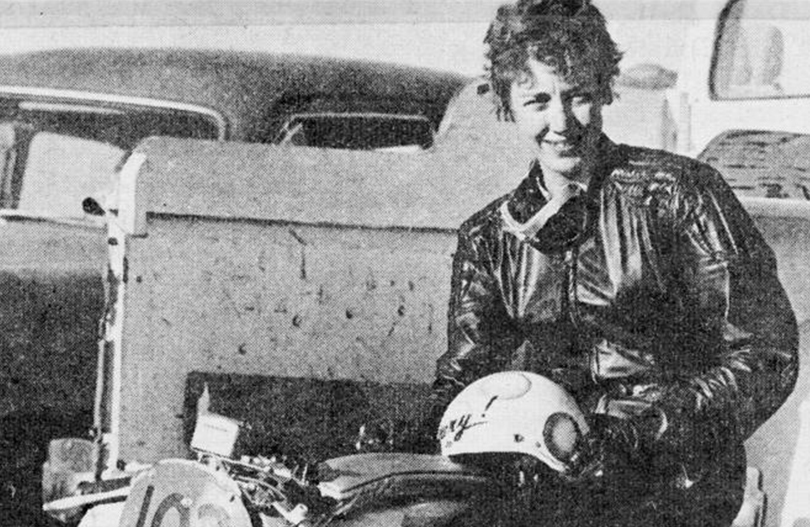
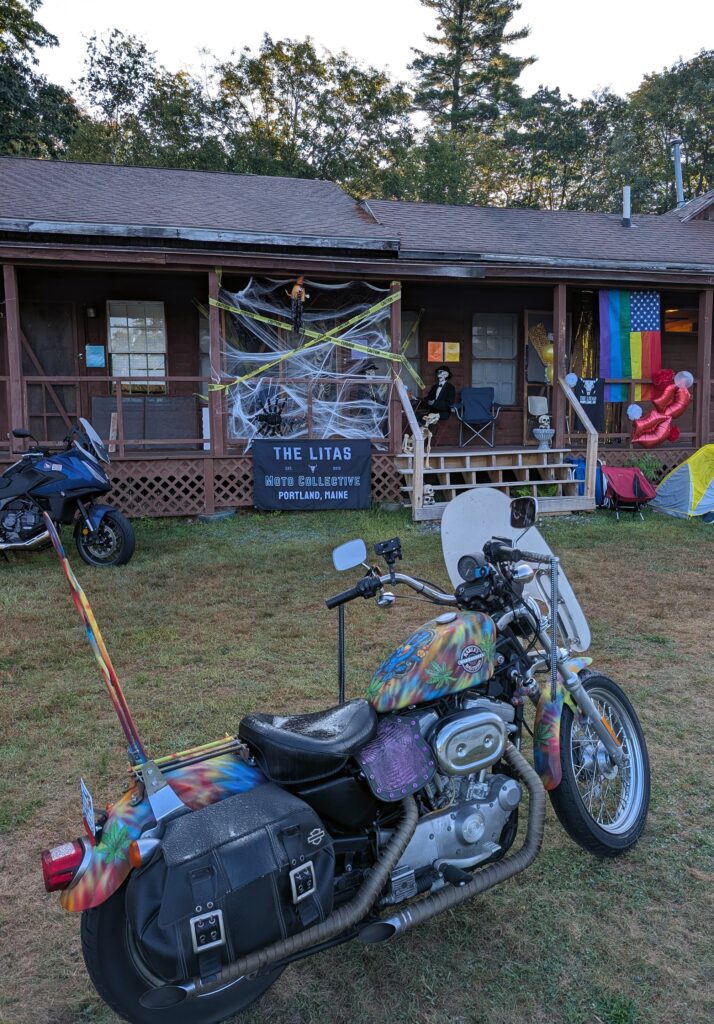
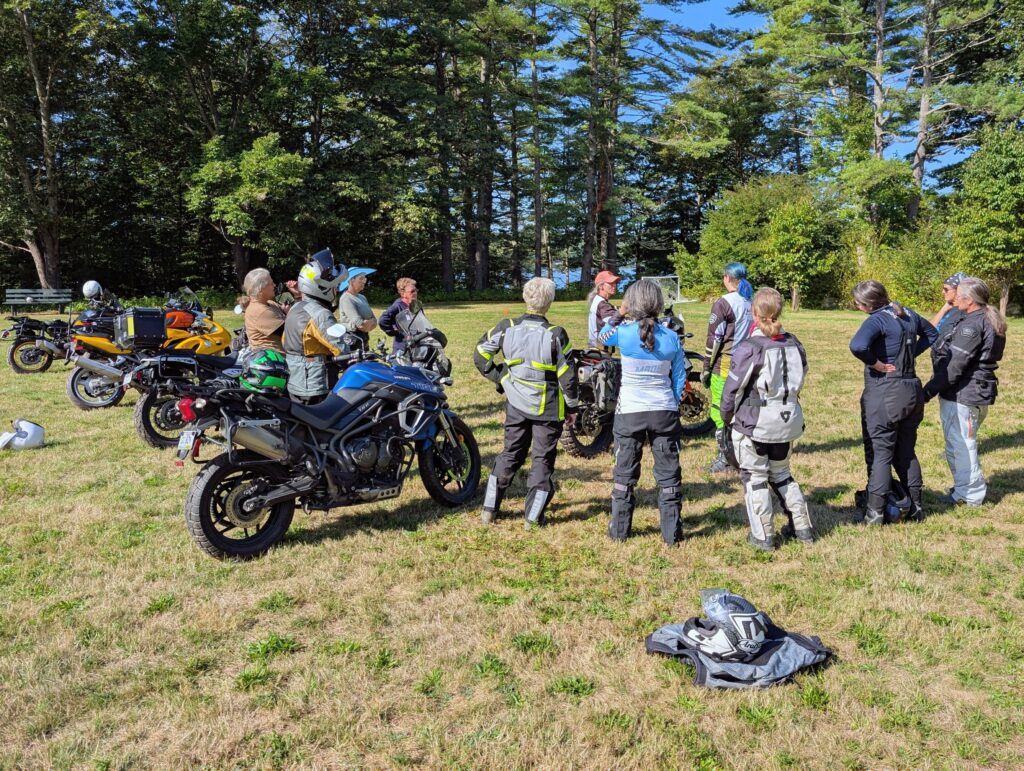
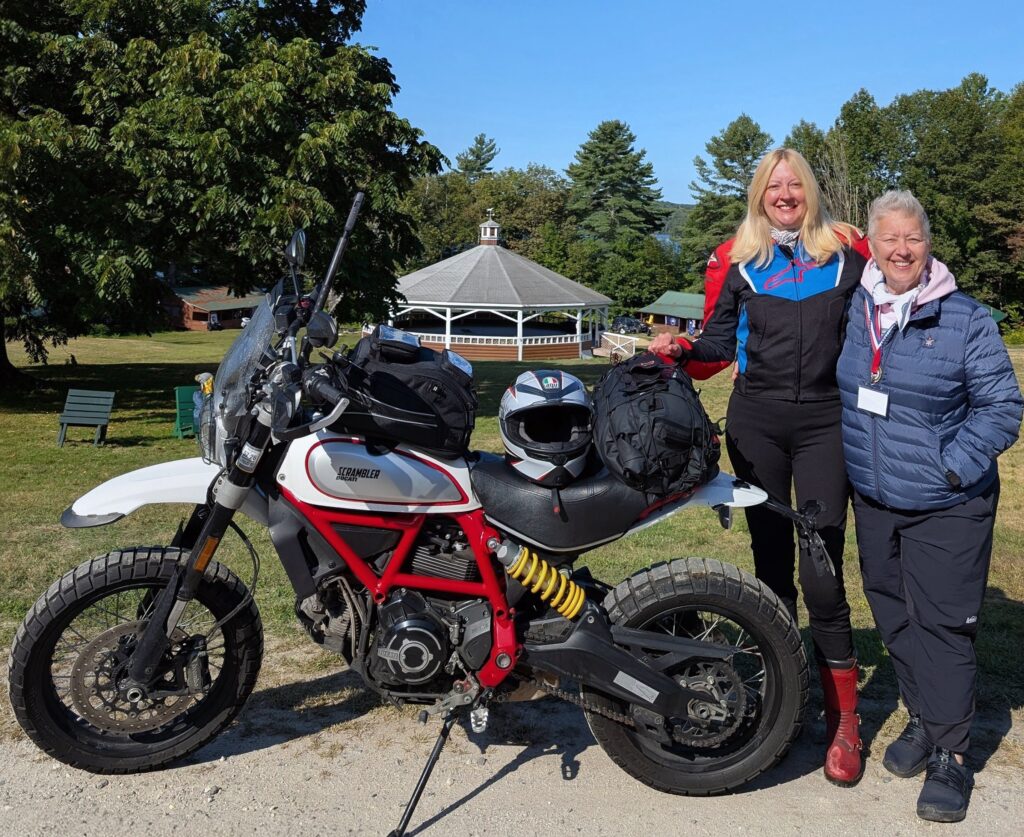
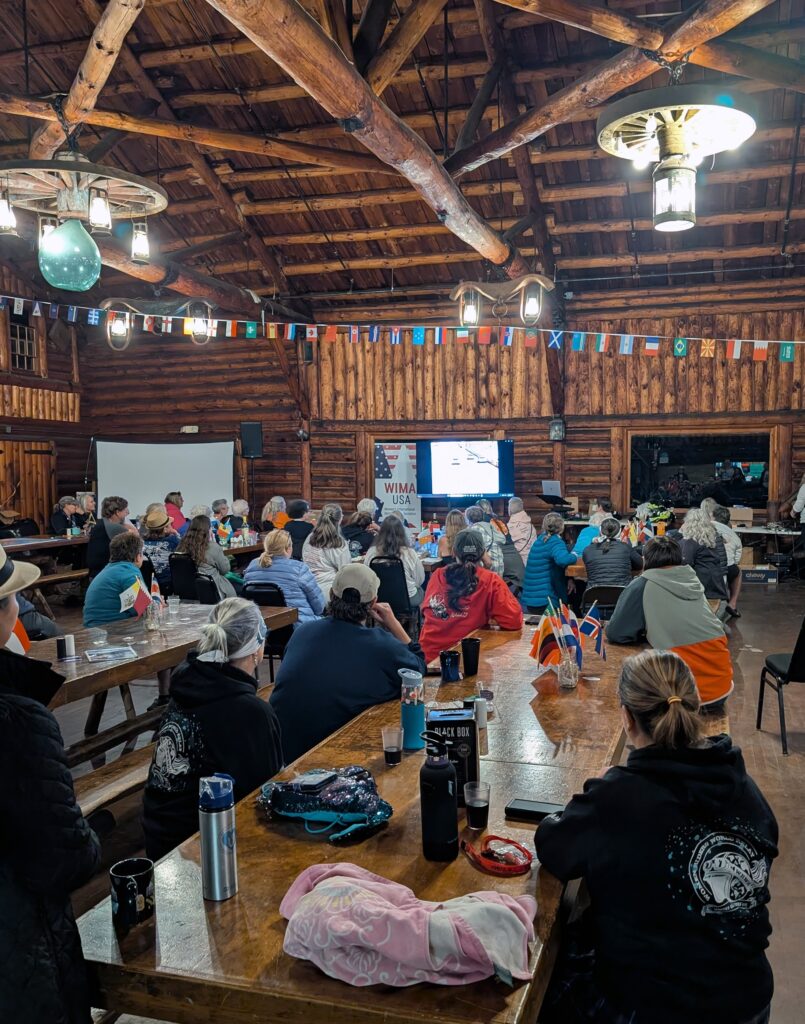
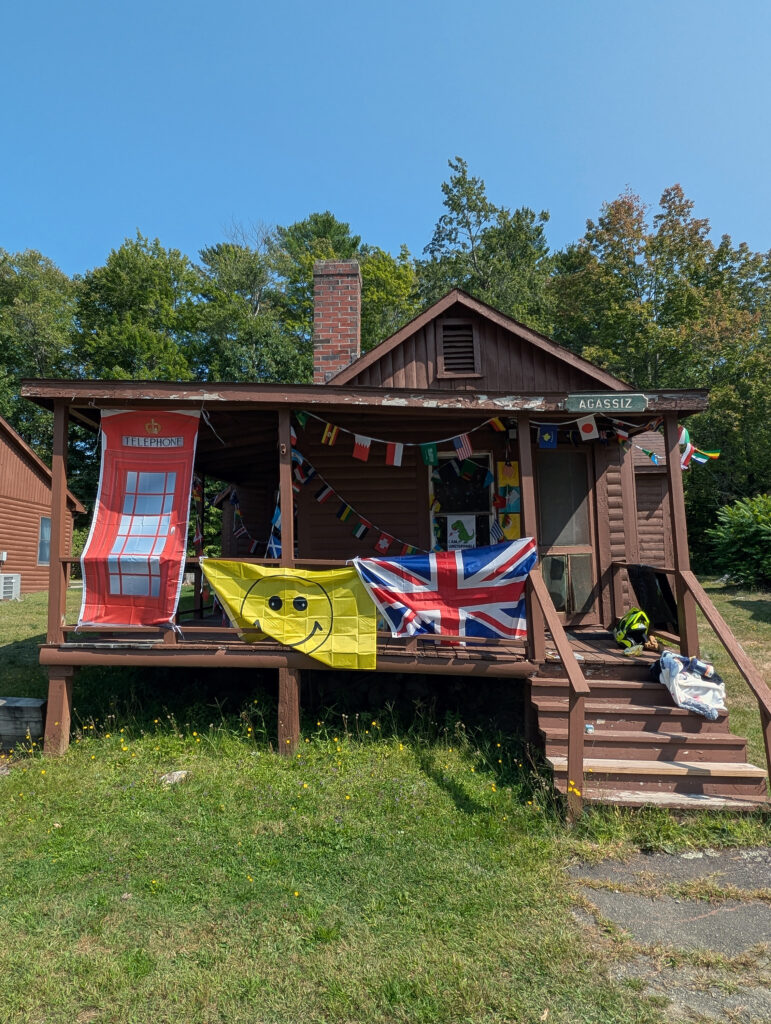
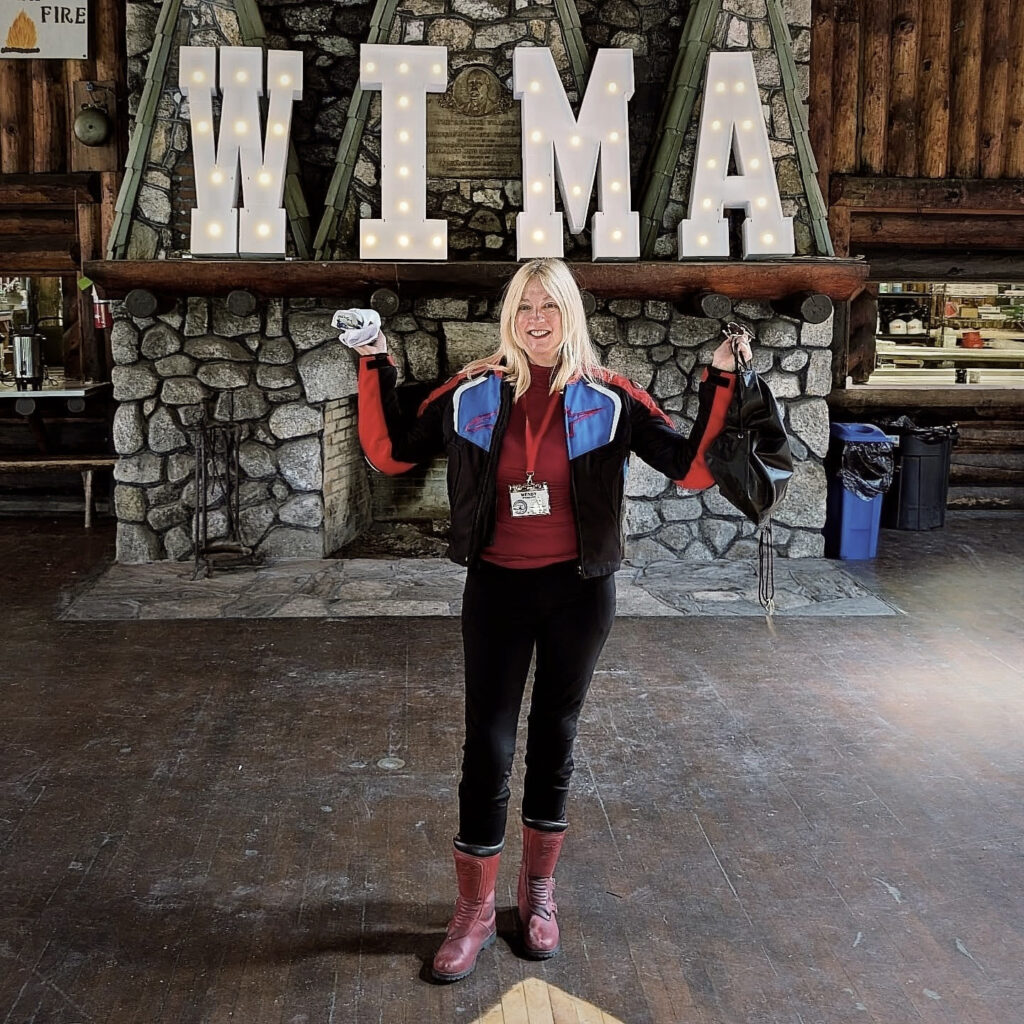
[2] For more on the past and upcoming Women Riders World Relay see https://womenridersworldrelay.com/ and on Bell see The American Motorcyclist https://americanmotorcyclist.com/hayley-bell-named-american-motorcyclist-association-2019-motorcyclist-of-the-year/
[3] See my review of Iron Horse Cowgirls https://thevintagent.com/2024/05/16/book-review-iron-horse-cowgirls-and-superbike/
[4] See Paul d’Orleans piece about Goldmann https://thevintagent.com/2017/09/07/anke-eve-goldmann/
[5] Linda Back McKay and Kate St. Vincent Vogl, Iron Horse Cowgirls: Louise Scherbyn and the Women Motorcyclists of the 1930s and 1940s (Jefferson, NC: McFarland & Company, 2023), 275.
[6] The current WIMA website is available here and includes links to national groups: https://wimaworld.com/
[7] See https://thevintagent.com/2024/11/30/the-vintagent-selects-motorcycle-mary/
[8] You can participate in the Ride4Mary at https://www.ride4mary.com/
[9] Maggie McNally was the first woman to be elected Chair of the Board of Directors for the AMA. She now runs the Motorcycle Safety Foundation training school at Hudson Valley Community College in Troy, New York. Learn more about Sarah Schilke at the Feroce podcast featured on Women Riders Now https://womenridersnow.com/feroce-podcast-for-motorcycle-enthusiasts-features-wrns-sarah-schilke/
[10] Biographies of AMA Hall of Famers are available at http://hof.motorcyclemuseum.org/halloffame
[11] I cover social media in chapter five of my forthcoming book Connected by the Street: The Myths and Realities of Motorcyclists in the US and Italy.
[12] You can listen to Liza Miller at https://motorcyclesandmisfits.com/ and learn about Wendy Crockett’s 100,000 mile adventure at https://pushingmiles.com/
[13] Learn more about SheADV at https://www.sheadv.com/
[14] WIMA-Germany hosted an international rally in Wilnsdorf in August, with 325 women from 23 countries in attendance–closer to the usual US figures. There was speculation that the US rally had lower attendance this year because of political and economic uncertainty.
[15] Note that Riders Share is not available in all US states https://www.riders-share.com/
[16] It also got me thinking about questions of gender, exceptionality, and motorcycle history that will be the subject of future research.
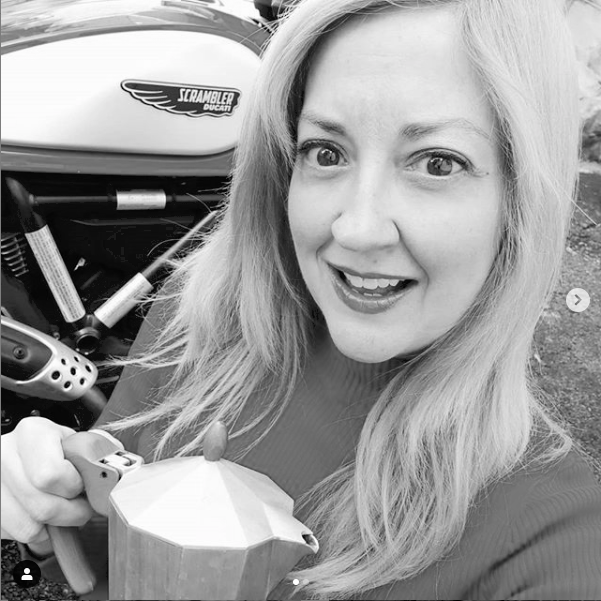


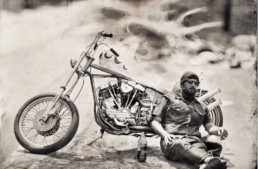
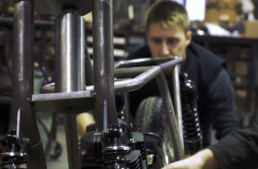
The WIMA … three cheers for the organization and the women involved .. 75 years despite all the ongoing misogynist attempts to shut women out .
The book ? ” Iron Horse Cowgirls ” … especially if you’re like me of the male persuasion … belongs in your library well read no doubt many times over the years
So why do I hold to these opinions ? Ahhh … might have something to do with that ” BeesWing ” ( kudos to Richard Thompson ) slip of a lass back in the day barely two years older than myself ( at age 13 ) who not only taught me how to ride a motorcycle .. but how to maneuver around the wall of death as well
Suffice it to say … that .. along with GoKart racing back in the day ( albeit a bit later ) against and with the only woman ever to RACE a modern era F1 car .. pretty much set in stone my Equal Rights attitude .. putting paid to any misogynist preconceptions feed to me by my misinformed family
So to all in the WIMA
Rock On – Ride On – Efff anyone who tells ya otherwise – Remain Calm ( despite the current zeitgeist in play ) .. and do Carry On … knowing full damn well there’s more than a few of my kind out there cheering you on and read to stand toe to toe with anyone in your way should you need to fill your numbers
😎
Cool place to have a convention.
I wonder what she did to whizz off the Motor Maids?I hope it was risque.The Motor Maids arent as big as they used to be.Maybe theyre seen as being kind of “out of it” and old fashioned.They still have a kind of club uniform.Todays women on bikes wouldnt go for a club uniform or anything.
Maybe you’ll do a feature on Patty Waggin’,the ’50s stripper who was crazy about bikes.
Ahem .. just an educated opinion here .. but the reality is the Motor Maids are at best … a very subservient group of women who happen to ride M/C’s while still bowing down to male domination … whereas the WIMA … well … lets just say subservient is the polar opposite of the WIMA’s zeitgeist and agenda .. and I say good on them for it … cause sometimes … kicking a little posterior IS what it takes to get a point across … the point in this case being … women can ride as well or better than men … have done as much if not more on a M/C .. and in fact did much of it well before any man ever considered it .
e.g. It aint about the uniform sonny … its all about freedom , equality and attitude
Funny how history has this wonderful ability to crush Male Dominance Mythology into the dirt with a single page
As far as Patti Waggin is concerned …. RideApart already did a feature on her along with TheSelvedgeYard and IMBD etc … so really … aint that enough fer ya ? i mean .. it aint like she contributed much of anything other than her T&A !
😎
I want to see her bikes.I saw something about her about 40 yrs ago in a cheapo girly mag(Gent,Nugget,Dude,Swank)Its hard to remember,but I quickly saw it at a newstand but didnt buy it.No money.Seems there was more info about her bikes in that old magazine article.
As i said …. look her up on RideApart … TheSelvedgeYard and many other sites … there’s no lock of info wbajaout the woman .. and no doubt your curiosity will be met by more than a few of them . Just DuckDuckGo .. Google etc her name for the complete list
As an example … TheSelvedgeYard alone has an entire article full of photos including her bikes .